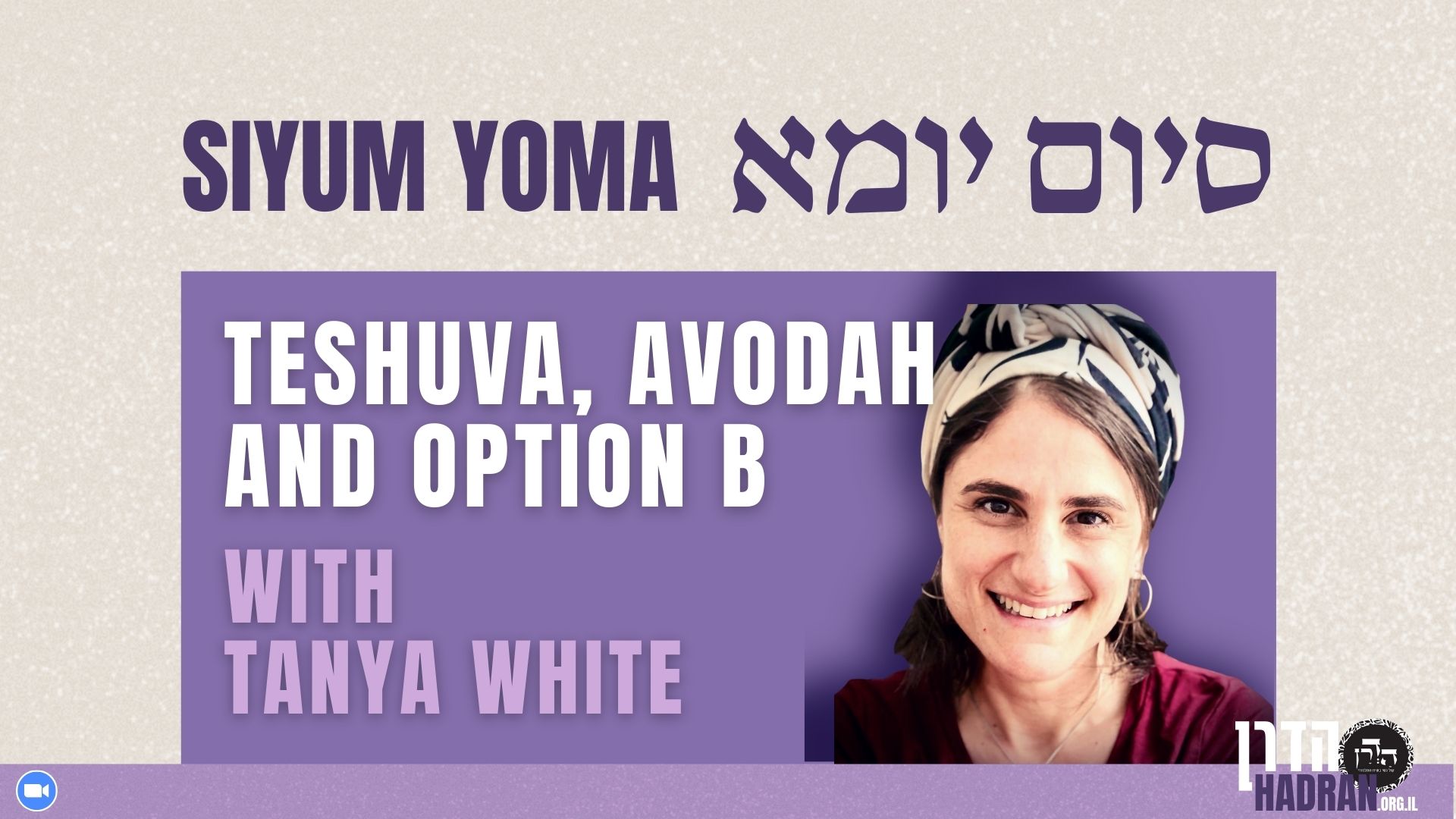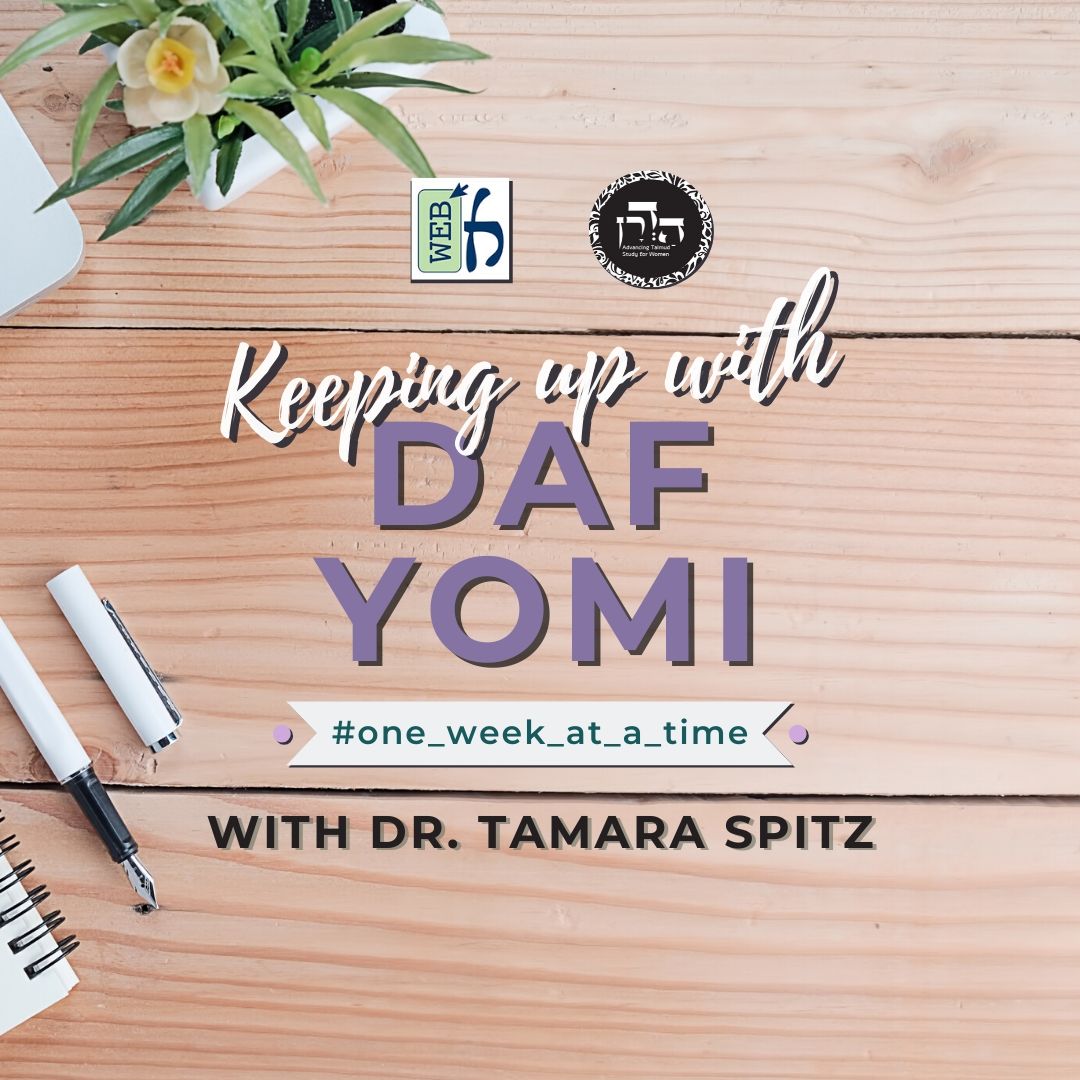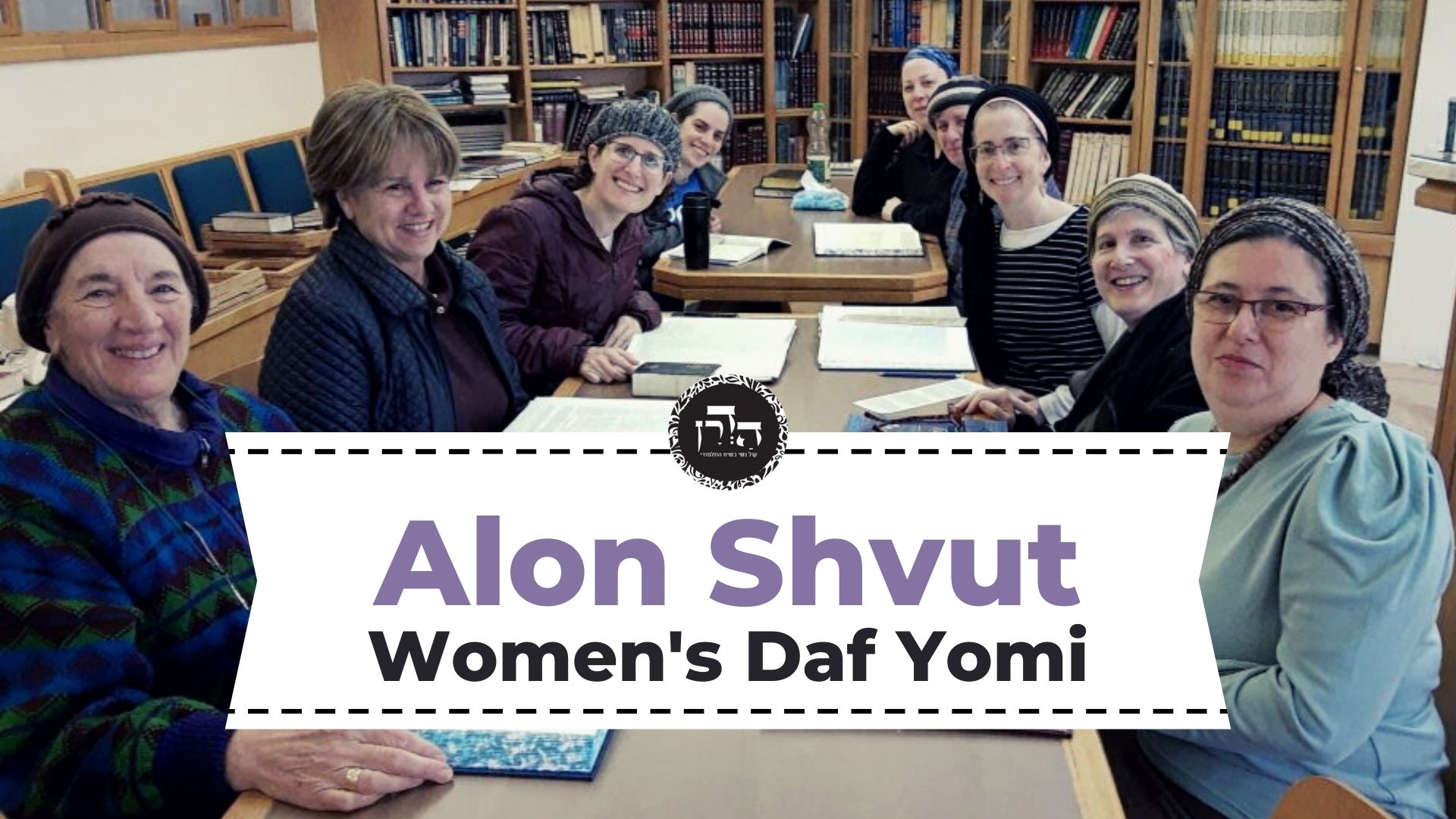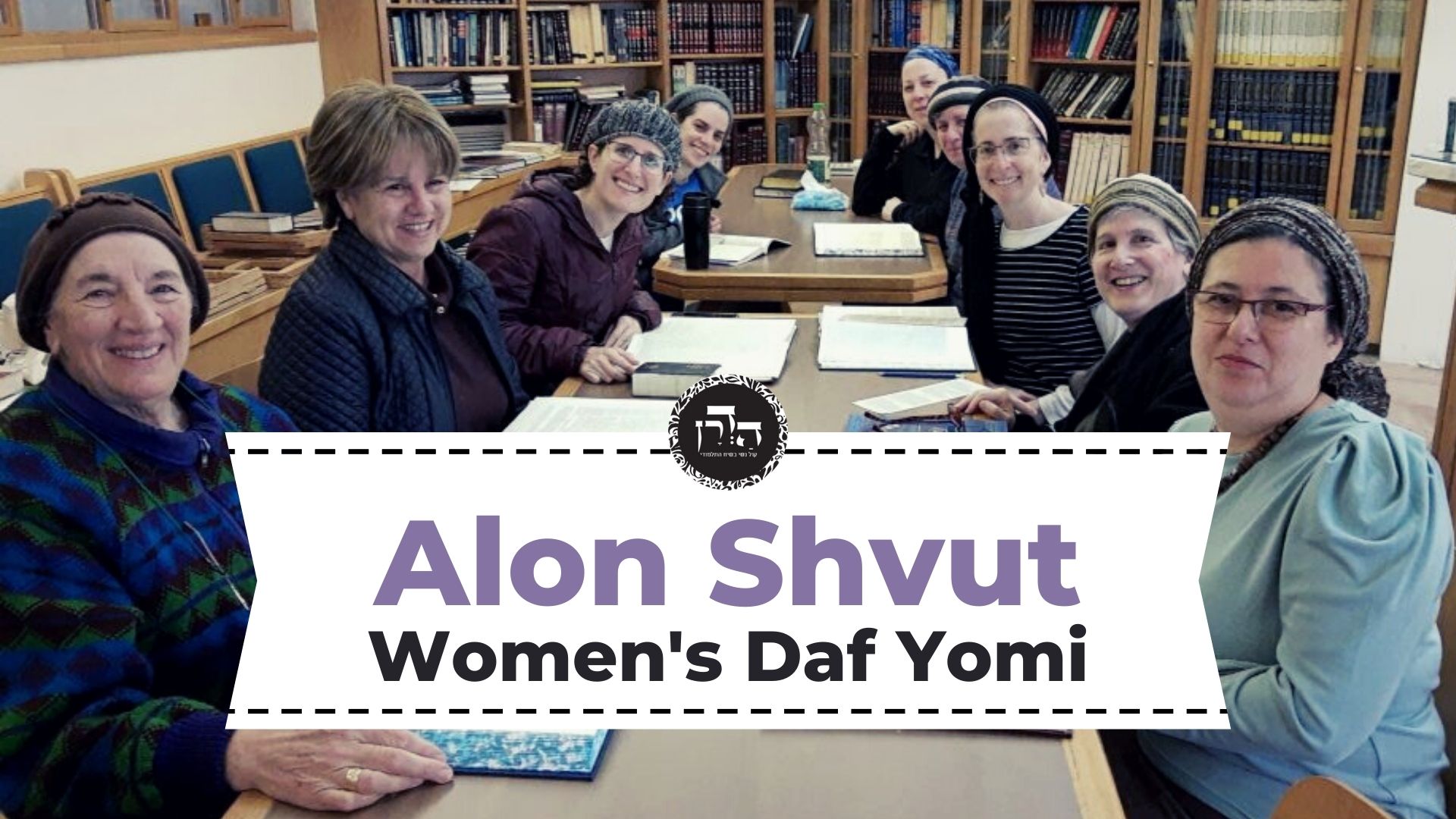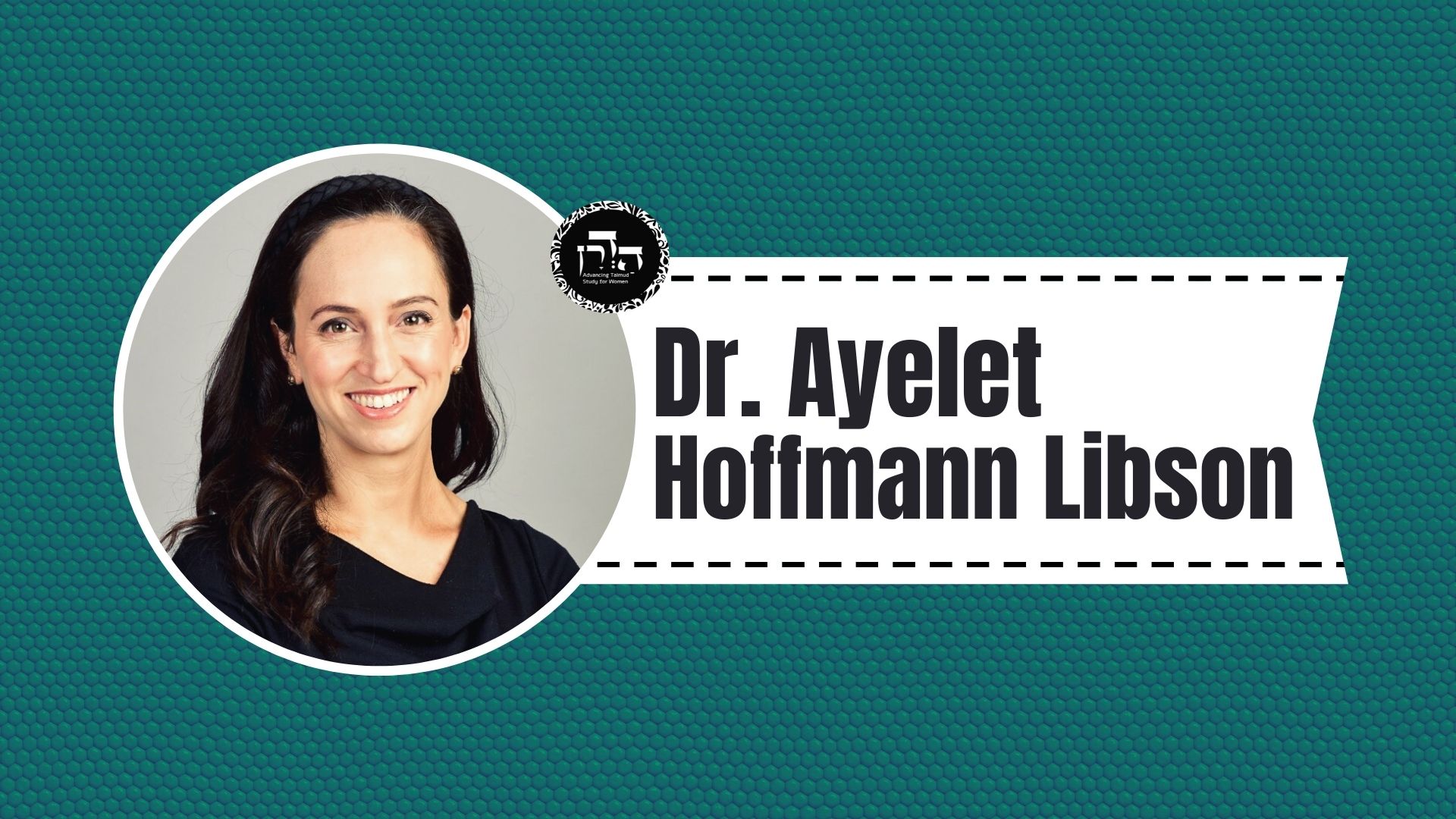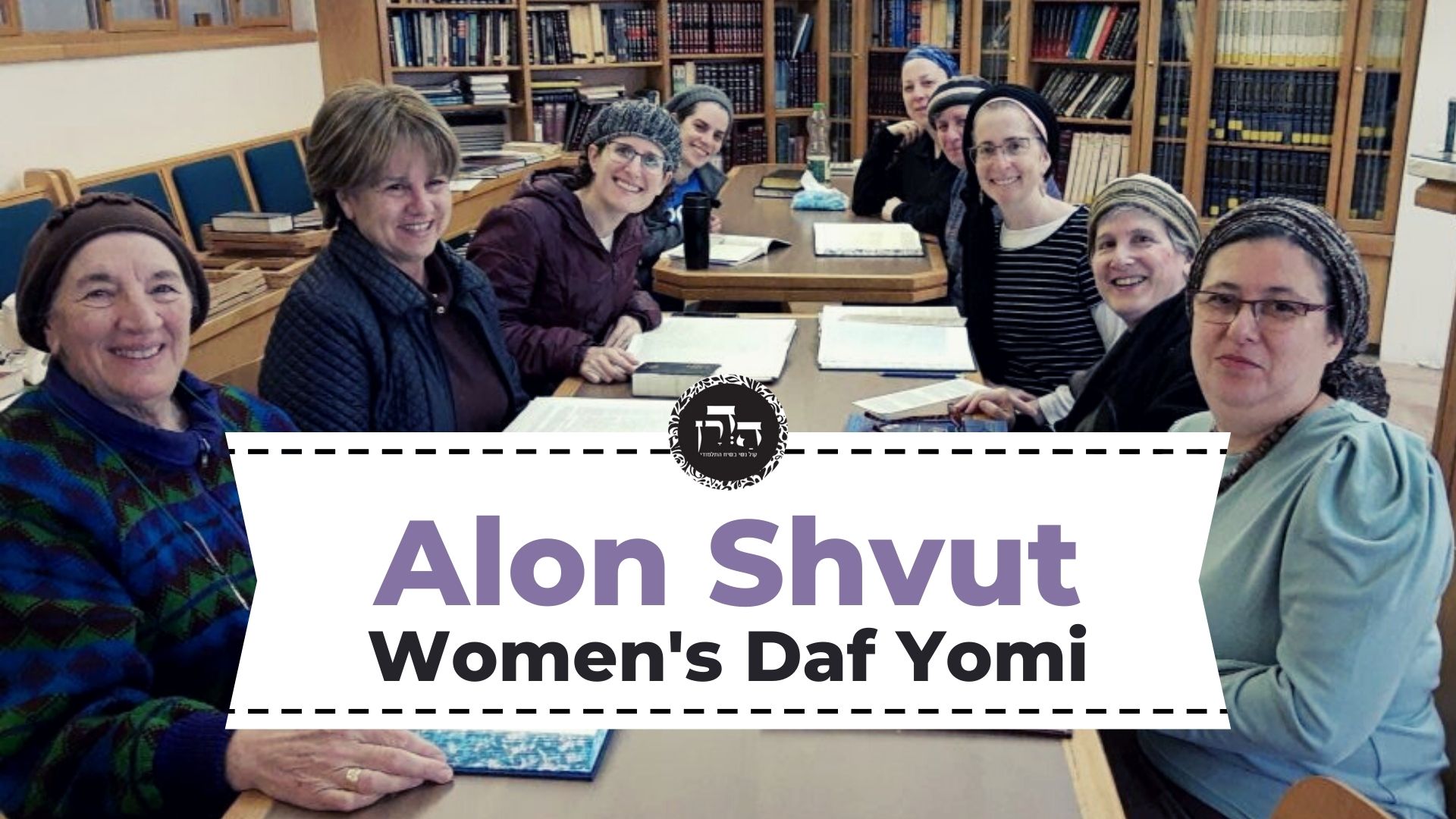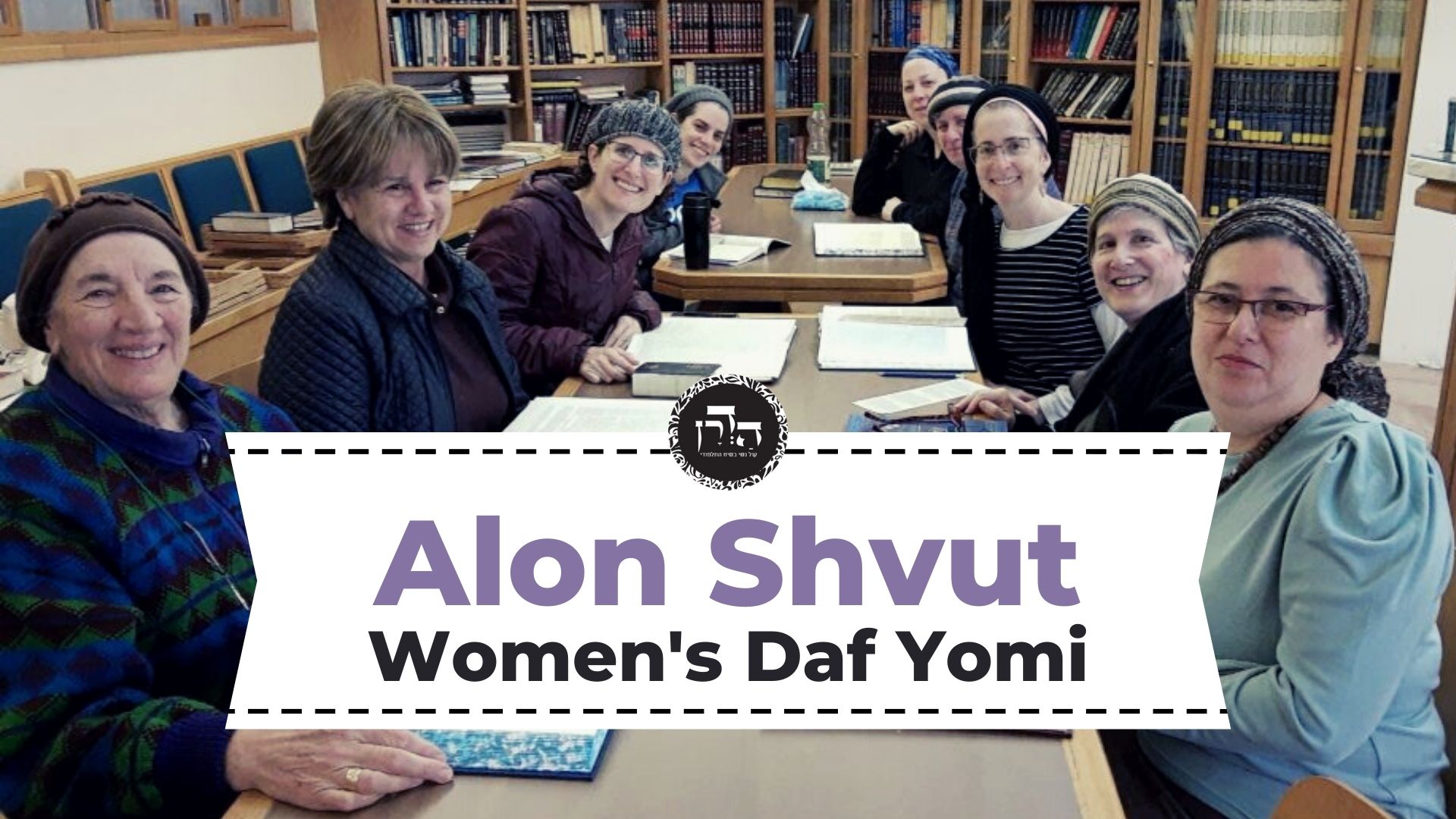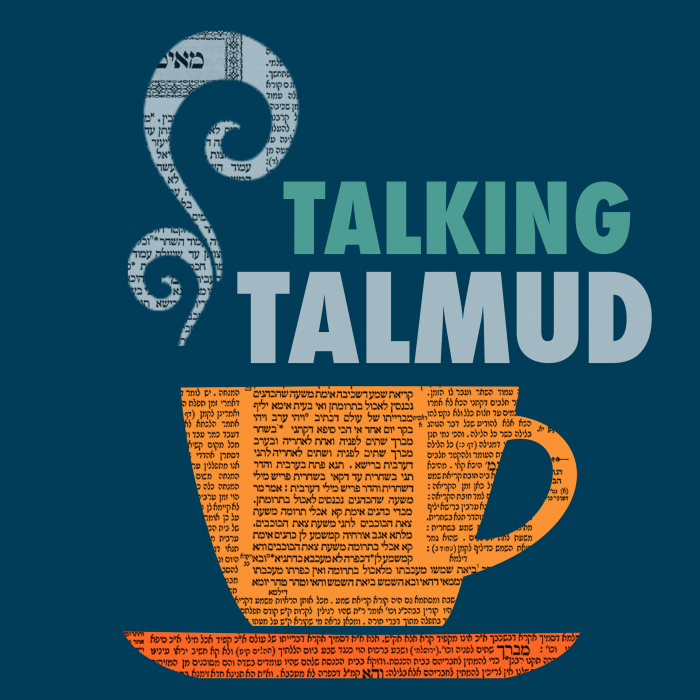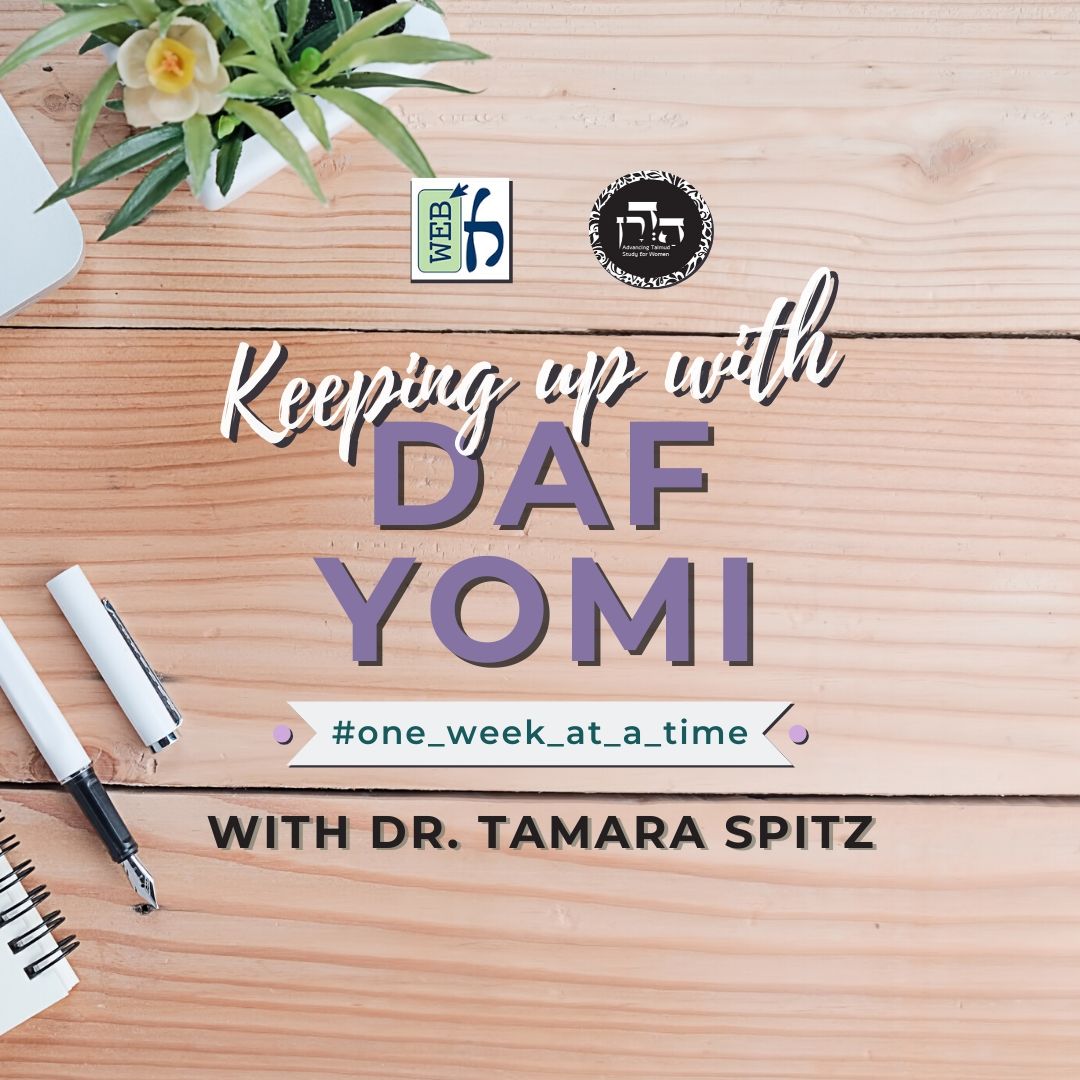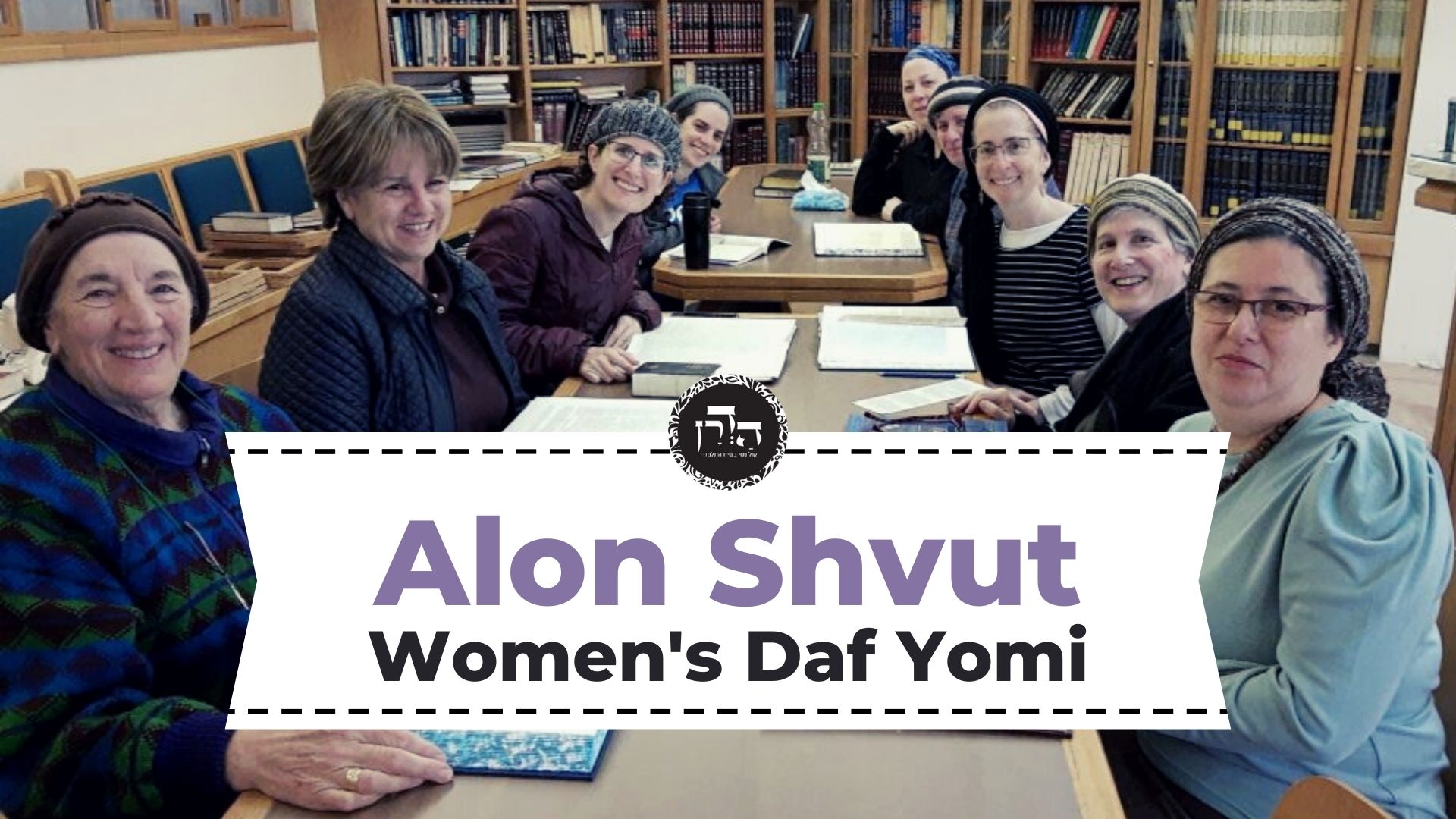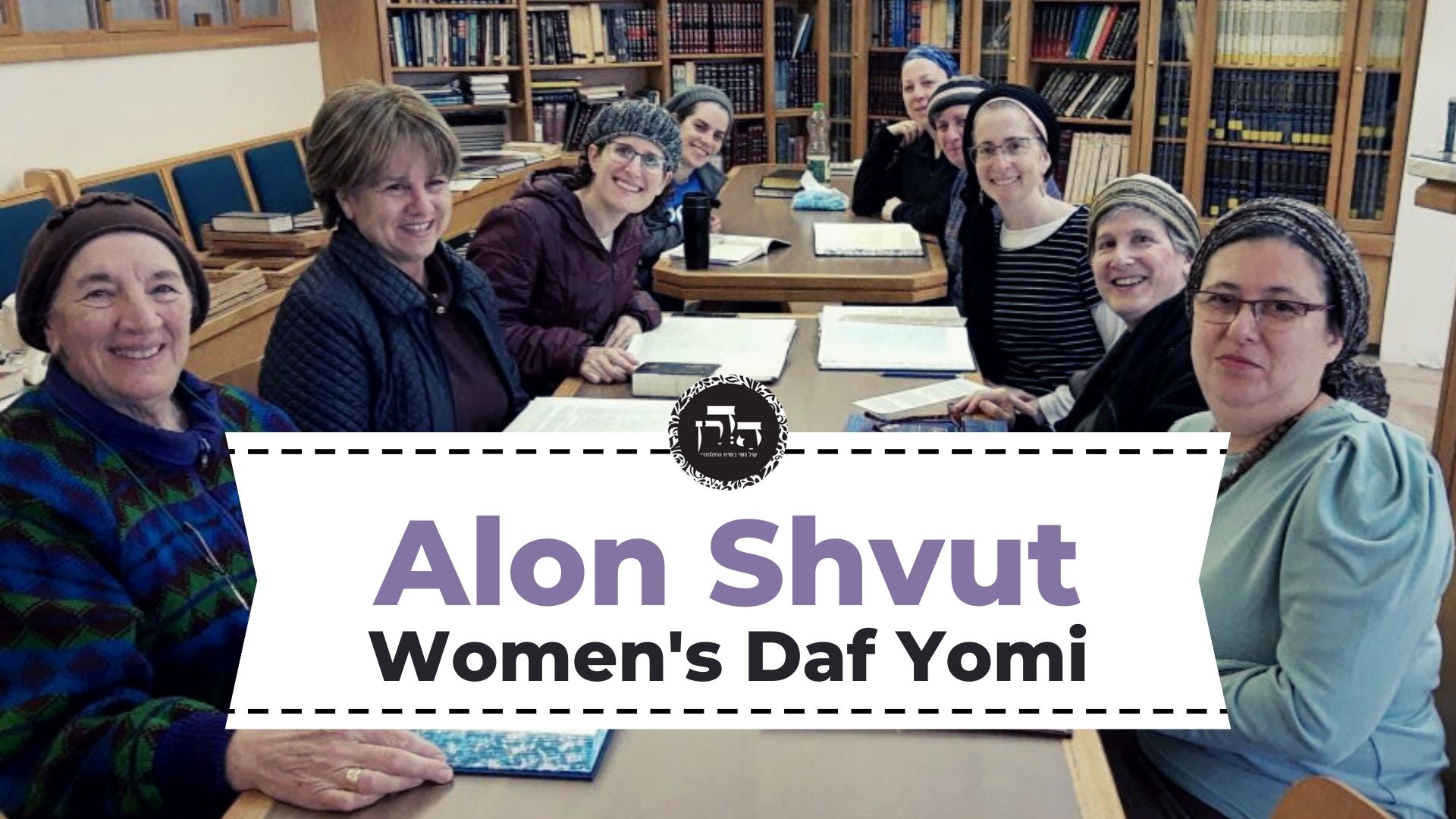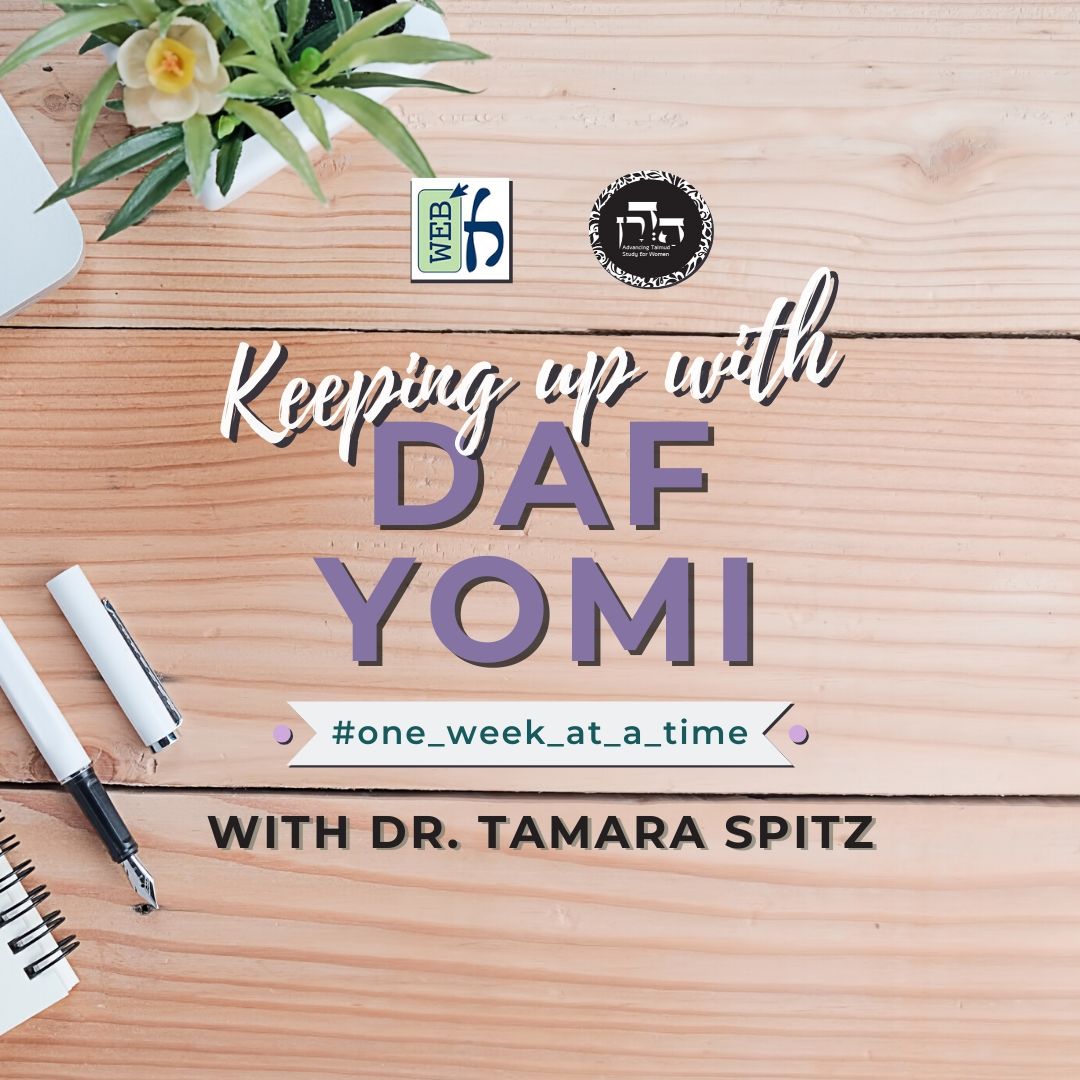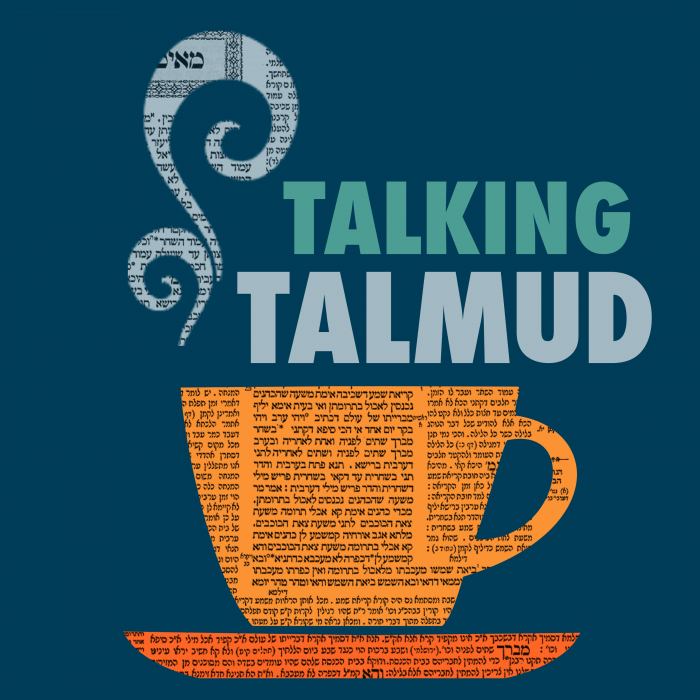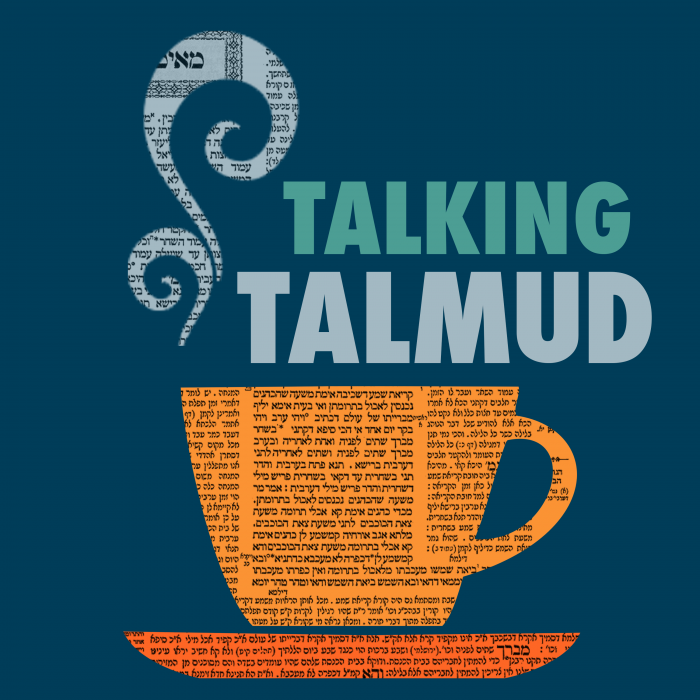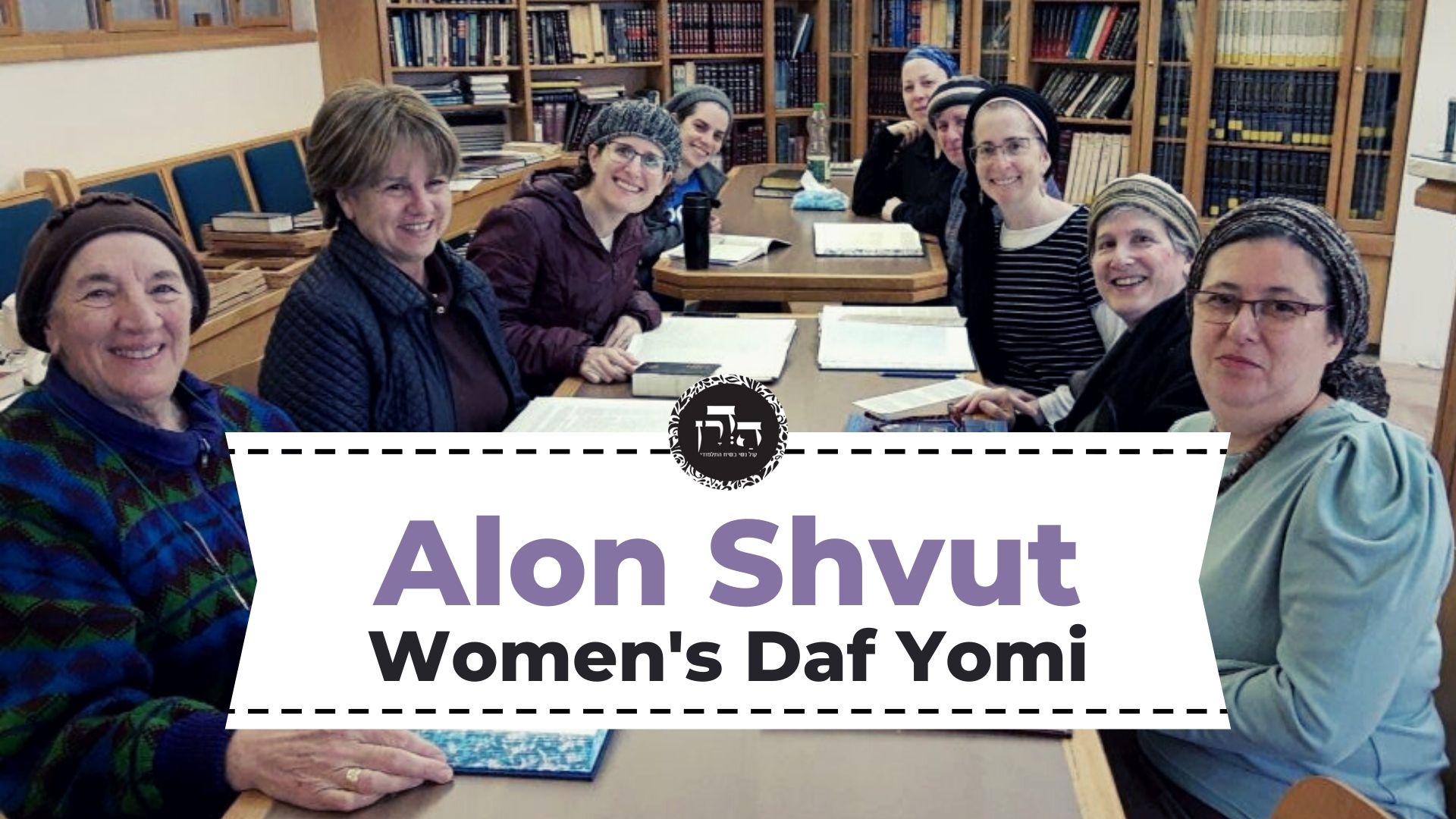Yoma 81
שֶׁכּוֹסֵס שְׂעוֹרִים שֶׁל תְּרוּמָה — מְשַׁלֵּם אֶת הַקֶּרֶן וְאֵינוֹ מְשַׁלֵּם אֶת הַחוֹמֶשׁ. ״כִּי יֹאכַל״ — פְּרָט לְמַזִּיק.
who chews on barley of teruma that has not been ground or baked pays the principal and not an extra fifth. The reason is that it states “eats” (Leviticus 22:14), which excludes one who harms himself. Consuming raw barley is considered self-harm, not eating.
אָמַר רַב שֵׁיזְבִי אָמַר רַבִּי יוֹחָנָן: זָר שֶׁבָּלַע שִׁזְפִין שֶׁל תְּרוּמָה וֶהֱקִיאָן וַאֲכָלָן אַחֵר, רִאשׁוֹן — מְשַׁלֵּם (אֶת) קֶרֶן וָחוֹמֶשׁ. שֵׁנִי — אֵין מְשַׁלֵּם אֶלָּא דְּמֵי עֵצִים לָרִאשׁוֹן בִּלְבַד.
Rav Sheizvi said that Rabbi Yoḥanan said: In the case of a non-priest who swallowed plums of teruma whole and vomited them out, whereupon another person ate them, the first one pays the principal plus a fifth. When the first one benefited from the plums, he acquired them and must therefore pay for them, and the second one must pay their worth to the first one. Since they are only fit for fuel after the first one vomited them out, the second person is considered to have damaged their value as fuel. Therefore, he pays only the price of wood, i.e., fuel, to the first person.
הָאוֹכֵל וְהַשּׁוֹתֶה אֵין מִצְטָרְפִין. מַאן תַּנָּא? אָמַר רַב חִסְדָּא: בְּמַחְלוֹקֶת שְׁנוּיָה, וְרַבִּי יְהוֹשֻׁעַ הִיא. דִּתְנַן, כְּלָל אָמַר רַבִּי יְהוֹשֻׁעַ: כֹּל שֶׁטּוּמְאָתוֹ וְשִׁיעוּרוֹ שָׁוֶה — מִצְטָרֵף.
§ It was taught in the mishna that food and drink do not combine. The Gemara asks: Who is the tanna who taught this? Rav Ḥisda said: This halakha is taught as a dispute, and the mishna is in accordance with the opinion of Rabbi Yehoshua. As we learned in a mishna: Rabbi Yehoshua stated a general principle: Any item that is identical to another item in its type of ritual impurity, e.g., impurity that lasts only until evening, and its measure for impurity, e.g., an olive-bulk, combines with the other item to reach one measure to render other items impure. Therefore, two half olive-bulk pieces of two corpses or of two animal carcasses, or two half lentil-bulk pieces from two creeping animals all combine to render other items impure.
טוּמְאָתוֹ וְלֹא שִׁיעוּרוֹ, שִׁיעוּרוֹ וְלֹא טוּמְאָתוֹ, לֹא טוּמְאָתוֹ וְלֹא שִׁיעוּרוֹ — אֵין מִצְטָרְפִין.
However, if one item is identical to another in its ritual impurity but not its measure, e.g., half a lentil-bulk of a creeping animal and half an olive-bulk of an animal carcass, which both impart impurity until nightfall; or if its measure is identical but not its type of ritual impurity, e.g., half an olive-bulk from a corpse, which imparts impurity for seven days, and half an olive-bulk from an animal carcass, which imparts impurity until nightfall; and all the more so, when neither its ritual impurity nor its measure are identical, then the items do not combine. Here, too, although both eating and drinking are prohibited on their own, they do not combine because they do not have the same measure that imparts impurity.
רַב נַחְמָן אָמַר: אֲפִילּוּ תֵּימָא רַבָּנַן, עַד כָּאן לָא קָא אָמְרִי רַבָּנַן הָתָם, אֶלָּא לְעִנְיַן טוּמְאָה, דְּשֵׁם טוּמְאָה חַד הִיא. אֲבָל הָכָא, מִשּׁוּם יַתּוֹבֵי דַּעְתָּא הוּא, וְהַאי לָא מִיַּתְּבָא דַּעְתֵּיהּ.
Rav Naḥman said: Even if you say that the mishna is in accordance with the opinion of the Rabbis, until now we have heard the Rabbis say there that items with different measures combine only with respect to ritual impurity. Since the phenomenon of ritual impurity is one concept, different types combine. But here, in the case of Yom Kippur, the measure that determines liability is set due to settling the mind, and this combination of eating and drinking together does not settle the mind.
וְכֵן אָמַר רֵישׁ לָקִישׁ: בְּמַחְלוֹקֶת שְׁנוּיָה, וְרַבִּי יְהוֹשֻׁעַ הִיא, דִּתְנַן: כְּלָל אָמַר רַבִּי יְהוֹשֻׁעַ כּוּ׳. וְרַבִּי יוֹחָנָן אָמַר: אֲפִילּוּ תֵּימָא רַבָּנַן, עַד כָּאן לָא קָאָמְרִי רַבָּנַן הָתָם אֶלָּא לְעִנְיַן טוּמְאָה, אֲבָל הָכָא, מִשּׁוּם יַתּוֹבֵי דַּעְתֵּיהּ הוּא, וְהַאי לָא קָא מִיַּתְּבָא דַּעְתֵּיהּ.
And similarly, Reish Lakish said: This question of whether food and drink combine to reach a measure that determines liability on Yom Kippur is taught as a dispute. The approach brought in the mishna that states that they do not combine is in accordance with the opinion of Rabbi Yehoshua, as we learned in a mishna: Rabbi Yehoshua stated a general principle with regard to whether items with different types of impurity and measures combine, as Rav Ḥisda explained above. And Rabbi Yoḥanan said in accordance with the opinion of Rav Naḥman: Even if you say that the mishna is in accordance with the opinion of the Rabbis, until now we have heard the Rabbis say there that items with different measures combine only with regard to ritual impurity. But here, in the case of Yom Kippur, the measure that determines liability is set due to settling the mind, and this combination of eating and drinking together does not settle the mind.
מַתְנִי׳ אָכַל וְשָׁתָה בְּהֶעְלֵם אֶחָד — אֵינוֹ חַיָּיב אֶלָּא חַטָּאת אַחַת. אָכַל וְעָשָׂה מְלָאכָה — חַיָּיב שְׁתֵּי חַטָּאוֹת. אָכַל אוֹכָלִין שֶׁאֵינָן רְאוּיִן לַאֲכִילָה, וְשָׁתָה מַשְׁקִין שֶׁאֵינָן רְאוּיִן לִשְׁתִיָּה, וְשָׁתָה צִיר אוֹ מוּרְיָיס — פָּטוּר.
MISHNA: If one ate and drank unwittingly within one lapse of awareness, e.g., he forgot that it is Yom Kippur, he is liable to bring only one sin-offering. However, if he ate and performed labor unwittingly, he is liable to bring two sin-offerings, as by doing so he violated two separate prohibitions. If he ate foods that are not fit for eating, or drank liquids that are not fit for drinking, or drank fish brine or the briny liquid in which fish are pickled, he is exempt, as that is not the typical manner of eating or drinking.
גְּמָ׳ אָמַר רֵישׁ לָקִישׁ: מִפְּנֵי מָה לֹא נֶאֶמְרָה אַזְהָרָה בְּעִינּוּי? מִשּׁוּם דְּלָא אֶפְשָׁר. הֵיכִי נִכְתּוֹב? נִכְתּוֹב רַחֲמָנָא ״לֹא יֵאָכֵל״ — אֲכִילָה בִּכְזַיִת! נִכְתּוֹב רַחֲמָנָא ״לֹא תְעוּנֶּה״ — קוּם אֱכוֹל מַשְׁמַע.
GEMARA: Reish Lakish said: Why is there no warning stated about affliction; why did the Torah not state explicitly that it is prohibited to eat and drink on Yom Kippur? It is because it was not possible to write it that way. The Gemara explains: How could the Merciful One write it? Let the Merciful One write: One shall not eat on Yom Kippur. The term eat prohibits eating the amount of an olive-bulk, whereas on Yom Kippur the actual prohibited measure is a large date-bulk. Let the Merciful One write: Do not be afflicted. That indicates the opposite of affliction, and would mean: Get up and eat. Therefore, it is written: “For whatsoever soul it be that shall not be afflicted on that same day, he shall be cut off from his people” (Leviticus 23:29).
מַתְקֵיף לַהּ רַב הוֹשַׁעְיָא: נִכְתּוֹב רַחֲמָנָא ״הִשָּׁמֶר פֶּן לֹא תְעוּנֶּה״! אִם כֵּן נְפִישִׁי לְהוּ לָאוֵי.
Rav Hoshaya strongly objects to this: Let the Merciful One write it in this manner: Guard yourself lest you not be afflicted. The Gemara answers: If so, there would be too many negative mitzvot, as the following are all expressions of prohibition: Guard, lest, and not. One would then say that there are three prohibitions against eating.
מַתְקֵיף לַהּ רַב בִּיבִי בַּר אַבָּיֵי: נִכְתּוֹב רַחֲמָנָא ״הִשָּׁמֶר בְּמִצְוַת עִינּוּי״! אִם כֵּן ״הִשָּׁמֶר״ דְּלָאו — לָאו, ״הִשָּׁמֶר״ דַּעֲשֵׂה — עֲשֵׂה! מַתְקֵיף לַהּ רַב אָשֵׁי: נִכְתּוֹב: ״אַל תָּסוּר מִן הָעִינּוּי״! קַשְׁיָא.
Rav Beivai bar Abaye strongly objects to this: Let the Merciful One write: Guard yourself in the mitzva of affliction. The Gemara rejects this: If so, there is a principle: If the words guard yourself are written about a prohibition, it is considered to be a prohibition; if the words guard yourself are written about a positive mitzva, it is considered to be a positive mitzva. Had the Torah written it that way, one would understand that there is a positive mitzva of affliction, but there is no element of prohibition. Rav Ashi strongly objects to this: Let the Merciful One write: Do not stray from afflicting yourself, which would imply a negative mitzva. The Gemara says: Indeed, this is difficult. The Gemara concedes that it could have been written in this manner.
וְתַנָּא מַיְיתֵי לַהּ מֵהָכָא: ״וְעִנִּיתֶם אֶת נַפְשׁוֹתֵיכֶם וְכׇל מְלָאכָה לֹא תַעֲשׂוּ״. יָכוֹל יְהֵא עָנוּשׁ עַל תּוֹסֶפֶת מְלָאכָה — תַּלְמוּד לוֹמַר: ״וְכׇל הַנֶּפֶשׁ אֲשֶׁר תַּעֲשֶׂה כׇּל מְלָאכָה בְּעֶצֶם הַיּוֹם הַזֶּה״ — עַל עִיצּוּמוֹ שֶׁל יוֹם עָנוּשׁ כָּרֵת, וְאֵינוֹ עָנוּשׁ כָּרֵת עַל תּוֹסֶפֶת מְלָאכָה.
§ With regard to the prohibitions against eating and labor, the Gemara says: And a tanna cites the prohibitions relating to affliction on Yom Kippur from here: It is stated: “And you shall afflict your souls, you shall do no manner of labor” (Numbers 29:7). The Gemara considers: One might have thought that performing labor during the extension of the period of prohibition of labor, added before Yom Kippur actually begins, is punishable by karet. Therefore, the verse states: “And whatsoever soul it be that does any manner of labor on that same day” (Leviticus 23:30), which teaches that performing labor on that very day is punishable by karet, but labor performed during the extension of the period of prohibition of labor is not punishable by karet.
יָכוֹל לֹא יְהֵא עָנוּשׁ כָּרֵת עַל תּוֹסֶפֶת מְלָאכָה, אֲבָל יְהֵא עָנוּשׁ כָּרֵת עַל תּוֹסֶפֶת עִינּוּי — תַּלְמוּד לוֹמַר: ״כִּי כׇל הַנֶּפֶשׁ אֲשֶׁר לֹא תְעוּנֶּה בְּעֶצֶם הַיּוֹם הַזֶּה וְנִכְרְתָה״. עַל עִיצּוּמוֹ שֶׁל יוֹם עָנוּשׁ כָּרֵת, וְאֵינוֹ עָנוּשׁ כָּרֵת עַל תּוֹסֶפֶת עִינּוּי.
The baraita continues: One might have thought that performing labor during the extension of the period of prohibition of labor is not punishable by karet, but not afflicting oneself during the extension of the period of affliction is punishable by karet. Therefore, the verse states: “For whatsoever soul it be that shall not be afflicted on that same day, he shall be cut off from his people” (Leviticus 23:29), which teaches that not afflicting oneself on that very day is punishable by karet, but not afflicting oneself during the extension of the period of affliction is not punishable by karet.
יָכוֹל לֹא יְהֵא בִּכְלַל עוֹנֶשׁ, אֲבָל יְהֵא מוּזְהָר עַל תּוֹסֶפֶת מְלָאכָה — תַּלְמוּד לוֹמַר: ״וְכׇל מְלָאכָה לֹא תַעֲשׂוּ בְּעֶצֶם הַיּוֹם הַזֶּה״. עַל עִיצּוּמוֹ שֶׁל יוֹם הוּא מוּזְהָר, וְאֵינוֹ מוּזְהָר עַל תּוֹסֶפֶת מְלָאכָה.
The baraita continues: One might have thought that one who performs labor during the extension would not be included in the punishment of karet, but he would be warned against performing labor during the extension of the period of prohibition of labor with a prohibition incurring the punishment of lashes; therefore, the verse states: “And you shall do no manner of labor on that same day” (Leviticus 23:28). That teaches that he is warned not to perform labor on that very day, but he is not warned against performing labor during the extension of the period of prohibition of labor, and therefore he is not liable to receive lashes for doing so.
יָכוֹל לֹא יְהֵא מוּזְהָר עַל תּוֹסֶפֶת מְלָאכָה, אֲבָל יְהֵא מוּזְהָר עַל תּוֹסֶפֶת עִינּוּי — וְדִין הוּא: וּמָה מְלָאכָה שֶׁנּוֹהֶגֶת בְּשַׁבָּתוֹת וְיוֹם טוֹב אֵינוֹ מוּזְהָר עָלֶיהָ, עִינּוּי, שֶׁאֵינוֹ נוֹהֵג בְּשַׁבָּתוֹת וְיוֹם טוֹב — אֵינוֹ דִּין שֶׁלֹּא יְהֵא מוּזְהָר עָלָיו?!
The baraita continues: One might have thought: He would not be warned with regard to performing labor during the extension of the period of prohibition of labor that it is a prohibition that incurs lashes; but he would be warned with regard to not being in a state of affliction during the extension of the period of affliction that it is a prohibition that incurs lashes. However, that is incorrect, and it is learned from a logical derivation that it is not so: Just as with regard to labor, whose prohibition is observed on both Shabbatot and Festivals, one is not warned about the extension added to the day, is it not logical that with regard to affliction, which is not observed on Shabbatot and Festivals, he should not be warned about or liable to receive lashes for the extension?
אֲבָל אַזְהָרָה לְעִינּוּי שֶׁל יוֹם עַצְמוֹ לֹא לָמַדְנוּ מִנַּיִין. לֹא יֹאמַר עוֹנֶשׁ בִּמְלָאכָה, דְּגָמַר מֵעִינּוּי: וּמָה עִינּוּי שֶׁאֵינוֹ נוֹהֵג בְּשַׁבָּתוֹת וְיוֹם טוֹב עָנוּשׁ כָּרֵת, מְלָאכָה שֶׁנּוֹהֶגֶת בְּשַׁבָּתוֹת וְיָמִים טוֹבִים — לֹא כׇּל שֶׁכֵּן? לָמָּה נֶאֱמַר — מוּפְנֶה לְהַקִּישׁ וְלָדוּן מִמֶּנּוּ גְּזֵרָה שָׁוָה: נֶאֱמַר עוֹנֶשׁ בְּעִינּוּי וְנֶאֱמַר עוֹנֶשׁ בִּמְלָאכָה, מָה מְלָאכָה — לֹא עָנַשׁ אֶלָּא אִם כֵּן הִזְהִיר, אַף עִינּוּי — לֹא עָנַשׁ אֶלָּא אִם כֵּן הִזְהִיר.
The baraita comments: But the warning about lashes during the very day itself we have not learned. From where is it derived? The Torah need not state the punishment of karet for performing labor, since one can learn it by logical derivation from the punishment of not being in a state of affliction, as follows: Just as the requirement of affliction, which is not observed on Shabbatot and Festivals, is punishable by karet on Yom Kippur, with regard to the prohibition of labor, which is observed on all Shabbatot and Festivals, is it not all the more so? If so, why is the punishment for labor stated explicitly? It is available to compare and learn a verbal analogy from it: A punishment with regard to affliction is stated, and a punishment with regard to labor is stated. Just as with regard to labor one is punished only if he was warned first with a negative mitzva, so too, with regard to affliction, one is punished only if he was warned.
אִיכָּא לְמִיפְרַךְ: מָה לְעִינּוּי שֶׁלֹּא הוּתַּר מִכְּלָלוֹ, תֹּאמַר בִּמְלָאכָה שֶׁהוּתְּרָה מִכְּלָלָהּ!
The Gemara rejects this: This comparison can be refuted. How so? Whereas affliction has no permitted exceptions from its general prohibition, as the mitzva to afflict oneself applies to all the Jewish people, what can you say with regard to labor, which has permitted exceptions from its general prohibition? It is permitted to perform the Temple services on Yom Kippur, which include prohibited labors, e.g., slaughtering animals and offering incense. Consequently, there is no proof that the mitzva of affliction is more lenient than the prohibition of labor.
אֶלָּא: לֹא יֵאָמֵר עוֹנֶשׁ בְּעִינּוּי, דְּגָמַר מִמְּלָאכָה. מָה מְלָאכָה שֶׁהוּתְּרָה מִכְּלָלָהּ — עָנוּשׁ כָּרֵת, עִינּוּי שֶׁלֹּא הוּתַּר מִכְּלָלוֹ — לֹא כׇּל שֶׁכֵּן. לָמָּה נֶאֱמַר — מוּפְנֶה, לְהַקִּישׁ וְלָדוּן מִמֶּנּוּ גְּזֵירָה שָׁוָה: נֶאֱמַר עוֹנֶשׁ בְּעִינּוּי וְנֶאֱמַר עוֹנֶשׁ בִּמְלָאכָה, מָה מְלָאכָה עָנַשׁ וְהִזְהִיר — אַף עִינּוּי עָנַשׁ וְהִזְהִיר.
Rather, say as follows: The Torah need not say the punishment for not being in a state of affliction, since one can learn it from the punishment for performing labor through an a fortiori inference. How so? Just as labor, for which exceptions from the general prohibition are permitted, e.g., performing the Temple service on Yom Kippur, and yet labor is punishable by karet, with regard to not being in a state of affliction, which has no permitted exceptions from its general prohibition, is it not all the more so that one who does not afflict himself should be liable to receive karet? If so, why is it nevertheless stated? It is available to compare and learn a verbal analogy: Punishment is stated with regard to affliction, and punishment is stated with regard to labor. Just as for labor the Torah punished and warned, so too, for affliction the Torah punished and warned.
אִיכָּא לְמִיפְרַךְ: מָה לִמְלָאכָה — שֶׁכֵּן נוֹהֶגֶת בְּשַׁבָּתוֹת וְיָמִים טוֹבִים. תֹּאמַר בְּעִינּוּי — שֶׁאֵינוֹ נוֹהֵג בְּשַׁבָּתוֹת וְיָמִים טוֹבִים!
The Gemara rejects this: This comparison can be refuted, and one might say the opposite: Whereas the prohibition of labor is observed on Shabbatot and Festivals, can you say the same about affliction, which is not observed on Shabbatot and Festivals?
אָמַר רָבִינָא: הַאי תַּנָּא, ״עֶצֶם״ ״עֶצֶם״ גָּמַר. מוּפְנֶה, דְּאִי לָא מוּפְנֶה — אִיכָּא לְמִיפְרַךְ כִּדְפָרְכִינַן!
Ravina said: We did not properly understand the teaching of this baraita, as this tanna derived a verbal analogy from the words “on that same day” (Leviticus 23:29) stated with regard to affliction, and “on that same day” (Leviticus 23:28) stated with regard to labor. The Gemara comments: We must say that it is available, meaning that in both places, the phrase “on that same day” is unnecessary within its own context and comes only to teach this verbal analogy; as, if it were not available, it could be refuted, as we refuted it above.
לָאיֵי, אִפְּנוֹיֵי מוּפְנֶה. חַמְשָׁה קְרָאֵי כְּתִיבִי בִּמְלָאכָה, חַד לְאַזְהָרָה דִימָמָא, וְחַד לְאַזְהָרָה דְלֵילְיָא, וְחַד לְעוֹנֶשׁ דִּימָמָא, וְחַד לְעוֹנֶשׁ דְּלֵילְיָא, וְחַד לְאַפְנוֹיֵי לְמִגְמַר עִינּוּי מִמְּלָאכָה, בֵּין דִּימָמָא בֵּין דְּלֵילְיָא.
The Gemara responds: No, it is certainly available, and we may learn from it, as five verses are written with regard to the prohibition of labor on Yom Kippur. One to teach a warning with regard to the prohibition of labor on the day of Yom Kippur itself; and one for a warning with regard to labor on the night of Yom Kippur; and one for the punishment of karet for performing labor on the day; and one for the punishment for performing labor at night; and one verse to be available to derive the requirement of affliction from the prohibition of labor, both during the day and night, using a verbal analogy.
רַבִּי יִשְׁמָעֵאל תָּנָא: נֶאֱמַר כָּאן עִינּוּי, וְנֶאֱמַר לְהַלָּן עִינּוּי. מָה לְהַלָּן — לֹא עָנַשׁ אֶלָּא אִם כֵּן הִזְהִיר, אַף כָּאן — לֹא עָנַשׁ אֶלָּא אִם כֵּן הִזְהִיר. רַב אַחָא בַּר יַעֲקֹב אָמַר: יָלֵיף ״שַׁבַּת שַׁבָּתוֹן״ מִשַּׁבַּת בְּרֵאשִׁית: מָה לְהַלָּן — לֹא עָנַשׁ אֶלָּא אִם כֵּן הִזְהִיר, אַף כָּאן — לֹא עָנַשׁ אֶלָּא אִם כֵּן הִזְהִיר.
The school of Rabbi Yishmael taught an alternative verbal analogy for the derivation: “Affliction” is stated here, with regard to Yom Kippur, and “affliction” is stated later, with regard to a man who rapes a woman: “Because he has afflicted his neighbor’s wife” (Deuteronomy 22:24). Just as there, in the case of rape, the Torah did not punish unless there was prior warning, so too here, in the case of Yom Kippur, the Torah did not punish unless there was prior warning. Rav Aḥa bar Ya’akov said a different proof: Derive a verbal analogy from the words “Shabbat of solemn rest” (Leviticus 16:31) written with regard to Yom Kippur from the words “Shabbat of solemn rest” (Exodus 31:15, 32:5; Leviticus 23:3) written with regard to the weekly Shabbat, which commemorates the Shabbat of Creation. Just as there, in the case of Shabbat, the Torah did not punish unless there was prior warning, so too here, in the case of Yom Kippur, the Torah did not punish unless there was prior warning.
רַב פָּפָּא אָמַר:
Rav Pappa said:
הוּא גּוּפֵיהּ שַׁבָּת אִיקְּרִי, דִּכְתִיב: ״תִּשְׁבְּתוּ שַׁבַּתְּכֶם״. בִּשְׁלָמָא רַב פָּפָּא לָא אָמַר כְּרַב אַחָא בַּר יַעֲקֹב — דִּקְרָא דִּכְתִיב בְּגוּפֵיהּ עֲדִיף. אֶלָּא רַב אַחָא בַּר יַעֲקֹב, מַאי טַעְמָא לָא אָמַר כְּרַב פָּפָּא?
Yom Kippur itself is called “Shabbat,” as it is written: “From evening until evening, you shall rest on your Shabbat” (Leviticus 23:32). The Gemara compares the various opinions. Granted, Rav Pappa did not say as Rav Aḥa bar Ya’akov did because a verse that is written about the matter itself is preferable to a verbal analogy. But what is the reason that Rav Aḥa bar Ya’akov did not state his opinion in accordance with the opinion of Rav Pappa?
מִיבְּעֵי לֵיהּ לְכִדְתַנְיָא: ״וְעִנִּיתֶם אֶת נַפְשׁוֹתֵיכֶם בְּתִשְׁעָה לַחוֹדֶשׁ״. יָכוֹל יַתְחִיל וְיִתְעַנֶּה בְּתִשְׁעָה — תַּלְמוּד לוֹמַר: ״בָּעֶרֶב״. אִי בָּעֶרֶב — יָכוֹל מִשֶּׁתֶּחְשַׁךְ? תַּלְמוּד לוֹמַר: ״בְּתִשְׁעָה״. הָא כֵּיצַד? מַתְחִיל וּמִתְעַנֶּה מִבְּעוֹד יוֹם, מִכָּאן שֶׁמּוֹסִיפִין מֵחוֹל עַל הַקּוֹדֶשׁ.
The Gemara answers: He requires this verse of “keep your Shabbat” for that which was taught in a baraita: The verse states: “And you shall afflict your souls on the ninth day of the month at evening, from evening until evening, you shall rest on your Shabbat” (Leviticus 23:32). One might have thought that one should start to afflict oneself on the ninth of Tishrei; therefore, the verse states “at evening.” If the Torah had stated only “at evening,” one might have thought that the fast starts only when darkness falls; therefore, the verse states “on the ninth,” implying that one begins to fast on the ninth of Tishrei. How can these verses be reconciled? One begins to fast while it is still daytime; from here it is derived that one sanctifies and extends from the non-sacred weekday to the sacred day of Yom Kippur.
וְאֵין לִי אֶלָּא בִּכְנִיסָתוֹ, בִּיצִיאָתוֹ מִנַּיִן — תַּלְמוּד לוֹמַר: ״מֵעֶרֶב עַד עֶרֶב״. וְאֵין לִי אֶלָּא יוֹם הַכִּפּוּרִים, (יָמִים טוֹבִים) מִנַּיִין — תַּלְמוּד לוֹמַר: ״תִּשְׁבְּתוּ״. אֵין לִי אֶלָּא (יָמִים טוֹבִים, שַׁבָּתוֹת) מִנַּיִן — תַּלְמוּד לוֹמַר: ״שַׁבַּתְּכֶם״. הָא כֵּיצַד? כׇּל מָקוֹם שֶׁנֶּאֱמַר שְׁבוּת, (מִכָּאן שֶׁ)מוֹסִיפִין מֵחוֹל עַל הַקּוֹדֶשׁ.
I have derived only that one must add time at the beginning of Yom Kippur. From where do I derive that one adds time at the conclusion of Yom Kippur? The verse states: “From evening until evening” (Leviticus 23:32), implying that one adds at the end as well, just as he does at the beginning. And I have derived only the mitzva of adding to Yom Kippur; from where is it derived that one must also sanctify and append time before and after Festivals? The verse states: “You shall rest” (Leviticus 23:32), to teach that this rule applies even to Festivals, on which one is commanded to rest. I have derived only that one adds an extension to Festivals; from where do I derive that one must also sanctify and append to Shabbatot? The verse states: “Your Shabbat” (Leviticus 23:32). How so? Every place the term: Rest [shevut] is stated, it teaches from here that one sanctifies and appends from the non-sacred weekday to the sacred.
וְתַנָּא דְּ״עֶצֶם״ ״עֶצֶם״, הַאי ״בְּתִשְׁעָה לַחוֹדֶשׁ״ מַאי עָבֵיד לֵיהּ? מִיבְּעֵי לֵיהּ לְכִדְתָנֵי חִיָּיא בַּר רַב מִדִּיפְתִּי. דְּתָנֵי חִיָּיא בַּר רַב מִדִּיפְתִּי: ״וְעִנִּיתֶם אֶת נַפְשׁוֹתֵיכֶם בְּתִשְׁעָה״, וְכִי בְּתִשְׁעָה מִתְעַנִּין? וַהֲלֹא בֶּעָשׂוֹר מִתְעַנִּין! אֶלָּא לוֹמַר לְךָ: כָּל הָאוֹכֵל וְשׁוֹתֶה בִּתְשִׁיעִי, מַעֲלֶה עָלָיו הַכָּתוּב כְּאִילּוּ הִתְעַנָּה תְּשִׁיעִי וַעֲשִׂירִי.
The Gemara asks: And the tanna who learns a verbal analogy from the words “that same day,” “that same day,” what does he do with the phrase: “On the ninth day of the month”? The Gemara answers: He requires it, in accordance with that which Ḥiyya bar Rav of Difti taught. As Ḥiyya bar Rav of Difti taught: It states: “And you shall afflict your souls on the ninth day of the month” (Leviticus 23:32). But does one afflict oneself on the ninth of Tishrei? Doesn’t one in fact afflict oneself on the tenth of Tishrei? Rather, the verse comes to tell you: Anyone who eats and drinks on the ninth of Tishrei and then fasts on the tenth, the verse ascribes him credit as though he fasted on both the ninth and the tenth. The verse alludes to this when it states that the fast is on the ninth.
אָכַל אוֹכָלִין שֶׁאֵין רְאוּיִן לַאֲכִילָה. אָמַר רָבָא: כַּס פִּלְפְּלֵי בְּיוֹמָא דְכִפּוּרֵי — פָּטוּר. כַּס זַנְגְּבִילָא בְּיוֹמָא דְכִפּוּרֵי — פָּטוּר.
§ It was taught in the mishna: If one ate food that is not fit for eating, he is exempt. Rava said: If one chews raw pepper on Yom Kippur, he is exempt, since this is not considered eating. Similarly, if one chews ginger [zangvila] on Yom Kippur, he is exempt.
מֵיתִיבִי, הָיָה רַבִּי מֵאִיר אוֹמֵר: מִמַּשְׁמַע שֶׁנֶּאֱמַר: ״וַעֲרַלְתֶּם עׇרְלָתוֹ אֶת פִּרְיוֹ״, אֵינִי יוֹדֵעַ שֶׁעֵץ מַאֲכָל הוּא! אֶלָּא מָה תַּלְמוּד לוֹמַר ״עֵץ מַאֲכָל״? עֵץ שֶׁטַּעַם עֵצוֹ וּפִרְיוֹ שָׁוֶה, הֱוֵי אוֹמֵר זֶה פִּלְפְּלִין, לְלַמֶּדְךָ שֶׁהַפִּלְפְּלִין חַיָּיבִין בְּעׇרְלָה. וְאֵין אֶרֶץ יִשְׂרָאֵל חֲסֵרָה כְּלוּם, שֶׁנֶּאֱמַר ״לֹא תֶחְסַר כֹּל בָּהּ״!
The Gemara raises an objection to this. Rabbi Meir would say about the verse: “And when you shall come into the land, and shall have planted all manner of trees for food, then you shall count the fruit of it as forbidden [orla]; three years it shall be forbidden to you, it shall not be eaten” (Leviticus 19:23). From the implication of what is stated: “Then you shall count the fruit of it as forbidden,” do I not know that the verse is referring to “trees for food,” since it uses the word “fruit”? Rather, what is the meaning when the verse states “trees for food”? It includes a tree whose wood and fruit taste the same, i.e., a tree that is itself eaten in addition to its fruit. One must say that this is referring to pepper that grows on a tree, to teach you that even pepper is subject to the halakha of orla. And this also teaches that Eretz Yisrael lacks nothing, as even pepper can grow there, as it is stated among the listed praises of Eretz Yisrael: “You will not lack anything in it” (Deuteronomy 8:9). In any event, it has been derived that pepper is called food, which contradicts Rava’s statement.
לָא קַשְׁיָא: הָא — בְּרַטִּיבְתָּא, וְהָא — בְּיַבִּישְׁתָּא.
The Gemara answers: This is not difficult. This statement about edible pepper is referring to fresh pepper, which is moist; and that halakha pertaining to Yom Kippur is referring to dry pepper, which is not considered food.
אֲמַר לֵיהּ רָבִינָא לְמָרִימָר: וְהָאָמַר רַב נַחְמָן, הַאי הִימְלְתָא דְּאָתֵי מִבֵּי הִנְדּוּאֵי — שַׁרְיָא, וּמְבָרְכִינַן עֲלֵיהּ: ״בּוֹרֵא פְּרִי הָאֲדָמָה״. לָא קַשְׁיָא: הָא בְּרַטִּיבְתָּא, וְהָא בְּיַבִּישְׁתָּא.
Ravina said to Mareimar: But didn’t Rav Naḥman say that it is permitted to eat this cooked ginger [himalta] that comes from India, and there is no concern that gentiles may have cooked it. And we recite the blessing: Who creates the fruit of the ground, over it. Apparently, ginger is edible. The Gemara answers: This is not difficult: This statement is referring to wet ginger, which is considered food; and that earlier statement pertaining to Yom Kippur, which maintained that ginger is not food, is referring to dry ginger.
תָּנוּ רַבָּנַן: אָכַל עֲלֵי קָנִים — פָּטוּר. לוּלְבֵי גְפָנִים — חַיָּיב. אֵלּוּ הֵן לוּלְבֵי גְפָנִים? אָמַר רַבִּי יִצְחָק מִגְדְּלָאָה: כׇּל שֶׁלִּבְלְבוּ מֵרֹאשׁ הַשָּׁנָה וְעַד יוֹם הַכִּפּוּרִים. וְרַב כָּהֲנָא אָמַר: כׇּל שְׁלֹשִׁים יוֹם. תַּנְיָא כְּווֹתֵיהּ דְּרַבִּי יִצְחָק מִגְדְּלָאָה: אָכַל עֲלֵי קָנִים — פָּטוּר, וְלוּלְבֵי גְפָנִים — חַיָּיב. אֵלּוּ הֵן לוּלְבֵי גְפָנִים — כׇּל שֶׁלִּבְלְבוּ מֵרֹאשׁ הַשָּׁנָה וְעַד יוֹם הַכִּפּוּרִים.
The Sages taught in a baraita: If one ate leaves of reeds on Yom Kippur, he is exempt, but if one ate grapevine shoots he is liable. The Gemara clarifies: What are these grapevine shoots? Rabbi Yitzḥak from the city of Migdal said: All shoots that sprouted between Rosh HaShana and Yom Kippur and are still very soft are considered food. And Rav Kahana said: All shoots that sprouted up to thirty days before Yom Kippur are considered food. The Gemara comments: It was taught in a baraita in accordance with the opinion of Rabbi Yitzḥak from Migdal: If one ate leaves of reeds he is exempt, but if one ate grapevine shoots he is liable. What are these grapevine shoots? They are all those that sprouted between Rosh HaShana and Yom Kippur.
שָׁתָה צִיר אוֹ מוּרְיָיס — פָּטוּר. הָא חוֹמֶץ — חַיָּיב. מַתְנִיתִין מַנִּי? רַבִּי הִיא. דְּתַנְיָא: רַבִּי אוֹמֵר: חוֹמֶץ מֵשִׁיב אֶת הַנֶּפֶשׁ.
It was taught in the mishna that if on Yom Kippur one drank fish brine or the briny liquid in which fish are pickled, he is exempt. The Gemara comments: From the language of the mishna it may be inferred that if one drank vinegar, he is liable. Who is the tanna of the mishna? It is Rabbi Yehuda HaNasi, as it was taught in a baraita that Rabbi Yehuda HaNasi says: Vinegar revives the spirit and is therefore considered a beverage.
דָּרֵשׁ רַב גִּידֵּל בַּר מְנַשֶּׁה מִבֵּירֵי דְנַרֶשׁ: אֵין הֲלָכָה כְּרַבִּי. לְשָׁנָה נָפְקִי כּוּלֵּי עָלְמָא מָזְגוּ וְשָׁתוּ חַלָּא. שְׁמַע רַב גִּידֵּל וְאִיקְּפַד. אֲמַר: אֵימַר דַּאֲמַרִי אֲנָא — דִּיעֲבַד, לְכַתְּחִלָּה מִי אֲמַרִי? אֵימַר דַּאֲמַרִי אֲנָא — פּוּרְתָּא, טוּבָא מִי אֲמַרִי? אֵימַר דַּאֲמַרִי אֲנָא — חַי, מָזוּג מִי אֲמַרִי?
The Gemara relates: Rav Giddel bar Menashe from the town of Birei DeNeresh taught in a public lecture that the halakha is not in accordance with the opinion of Rabbi Yehuda HaNasi, and vinegar is not considered a beverage. The next year everyone went out and mixed vinegar with water and drank vinegar on Yom Kippur. Rav Giddel heard this and became angry with them for their actions. He said: Say that I said one is not liable for drinking vinegar only after the fact; however, did I say it is permitted to drink it ab initio? Furthermore: Say that I said my statement with regard to one who drinks a little, but did I say it is permitted to drink a lot? Furthermore: Say that I said my statement in reference to pure vinegar, which is very strong, but did I say anything about diluted vinegar? That is certainly prohibited.



